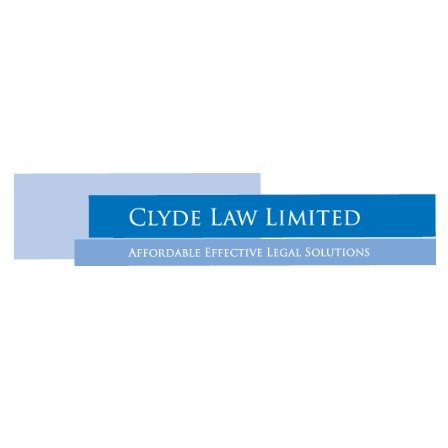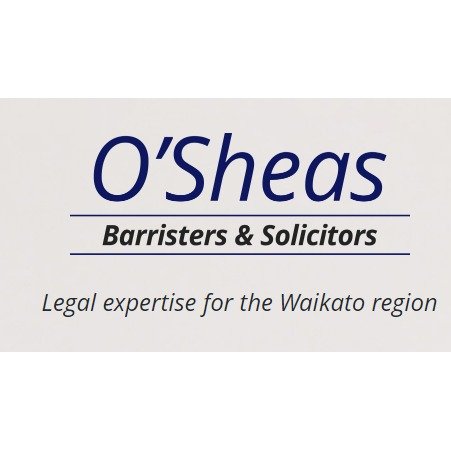Best Private Client Lawyers in Hamilton
Share your needs with us, get contacted by law firms.
Free. Takes 2 min.
List of the best lawyers in Hamilton, New Zealand
About Private Client Law in Hamilton, New Zealand
Private Client law in Hamilton, New Zealand focuses on providing legal advice and services to individuals, families, and trusts regarding personal legal matters. The field covers a variety of issues including estate planning, wills, trusts, elder law, powers of attorney, asset protection, and administration of estates. Private Client lawyers assist people in safeguarding their assets, supporting succession planning, and ensuring their wishes are respected in life and after death. As one of New Zealand's fastest-growing regions, Hamilton sees many residents seeking trustworthy legal guidance to manage and distribute personal wealth and provide for dependents.
Why You May Need a Lawyer
There are many situations where the expertise of a private client lawyer is crucial. Common scenarios include:
- Drafting or updating a will to ensure your assets go to the right beneficiaries
- Establishing and managing family trusts for asset protection or tax purposes
- Appointing enduring powers of attorney to manage financial or health matters if you lose capacity
- Navigating the administration of an estate after the death of a loved one
- Dealing with disputes over wills, estates, or trust matters
- Protecting vulnerable family members, particularly elderly relatives or minors
- Managing complex blended family or business succession scenarios
- Ensuring charitable intentions are properly structured and legally compliant
A private client lawyer helps avoid costly mistakes, reduces family conflict, and provides peace of mind that your personal matters are handled in accordance with the law.
Local Laws Overview
Hamilton is governed by New Zealand's national legal framework, with some local considerations. Key laws affecting private client matters include:
- Wills Act 2007: Sets out requirements for valid wills, revocations, and changes
- Trusts Act 2019: Provides modern rules for the creation and management of trusts, including new disclosure obligations for trustees
- Administration Act 1969: Governs how estates are administered when someone dies
- Family Protection Act 1955: Allows eligible family members to contest wills if not properly provided for
- Property (Relationships) Act 1976: Sets out rights of partners and spouses to relationship property on separation or death
- Enduring Powers of Attorney: Governed by the Protection of Personal and Property Rights Act 1988, allowing you to appoint someone to act in your interests if you lose capacity
Hamilton's private client lawyers are well-versed in these laws and their application to local needs, including navigating the Hamilton High Court for contested estates and the involvement of the Public Trust.
Frequently Asked Questions
What happens if I die without a will in Hamilton?
If you die intestate, the Administration Act 1969 dictates how your estate is distributed. The default rules may not reflect your wishes, so it is important to have a valid will in place.
How can I create a legally binding will?
A will must be in writing, signed by you (the testator), and witnessed by two people who are not beneficiaries or related to beneficiaries. A lawyer can help ensure your will is valid and enforceable.
Do I need a trust or is a will enough?
Trusts can offer greater asset protection and flexibility for succession planning but are not necessary for everyone. A lawyer can review your circumstances to recommend the best option.
Can my will be challenged after my death?
Yes. Family members may contest a will under the Family Protection Act 1955 if they feel they have not been provided for. Clear documentation and legal advice can help reduce the risk.
What is an Enduring Power of Attorney and do I need one?
An Enduring Power of Attorney (EPA) lets you appoint someone you trust to make decisions about your property or personal care if you become mentally incapable. It is advisable for all adults.
How is a deceased person's estate administered in Hamilton?
The estate is managed by an appointed executor or administrator, who collects assets, pays debts and taxes, and distributes what is left according to the will or law. Legal advice is recommended, especially for complex estates.
What should I do if I am an executor of a will?
You are legally responsible for administering the estate correctly. Engage a lawyer early to guide you through the process and help avoid personal liability.
Can I update my will if my circumstances change?
Yes. It is important to review your will after major life events such as marriage, divorce, births, or significant asset changes. A lawyer can prepare updates to ensure your will is current.
How do I protect a vulnerable family member's inheritance?
Trusts and wills can be structured to provide protections, such as appointing responsible trustees or including special conditions. Consult a private client lawyer to discuss your needs.
What is involved in creating a family trust in Hamilton?
Creating a trust involves preparing and executing a trust deed, transferring assets into the trust, and appointing trustees. Trustees have significant legal duties and should seek legal advice for compliance.
Additional Resources
There are several local and national resources available for private client matters in Hamilton:
- New Zealand Law Society
- Public Trust
- Community Law Waikato
- Citizens Advice Bureau Hamilton
- Office for Seniors - Ministry of Social Development
- Family Court, Hamilton
These organizations offer information, guidance, and in some cases, initial free legal support or referrals to specialist solicitors.
Next Steps
If you need legal assistance for private client matters in Hamilton, start by identifying your specific concerns such as wills, estate administration, trusts, or powers of attorney. Gather any relevant documents, including previous wills, trust deeds, or property titles. Contact a local law firm or the Community Law Waikato for an initial discussion or referral to a private client specialist.
A lawyer will clarify your objectives, evaluate your legal options, and help you implement the right structures or resolve disputes efficiently. Do not leave important personal and family matters to chance - seek expert help early for peace of mind and legal protection.
Lawzana helps you find the best lawyers and law firms in Hamilton through a curated and pre-screened list of qualified legal professionals. Our platform offers rankings and detailed profiles of attorneys and law firms, allowing you to compare based on practice areas, including Private Client, experience, and client feedback.
Each profile includes a description of the firm's areas of practice, client reviews, team members and partners, year of establishment, spoken languages, office locations, contact information, social media presence, and any published articles or resources. Most firms on our platform speak English and are experienced in both local and international legal matters.
Get a quote from top-rated law firms in Hamilton, New Zealand — quickly, securely, and without unnecessary hassle.
Disclaimer:
The information provided on this page is for general informational purposes only and does not constitute legal advice. While we strive to ensure the accuracy and relevance of the content, legal information may change over time, and interpretations of the law can vary. You should always consult with a qualified legal professional for advice specific to your situation.
We disclaim all liability for actions taken or not taken based on the content of this page. If you believe any information is incorrect or outdated, please contact us, and we will review and update it where appropriate.
Browse private client law firms by service in Hamilton, New Zealand
Hamilton, New Zealand Attorneys in related practice areas.
















